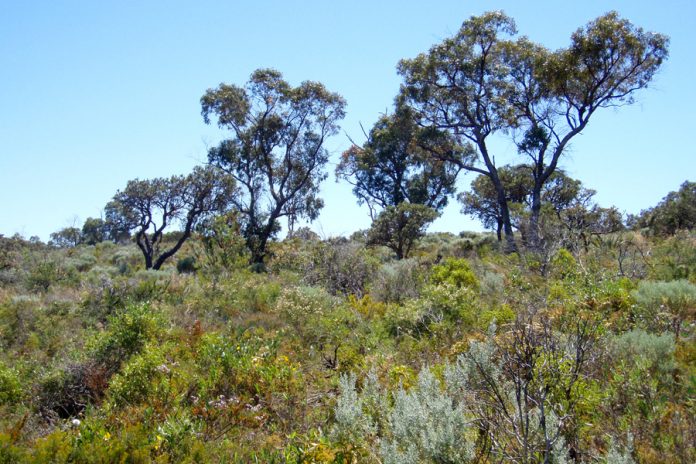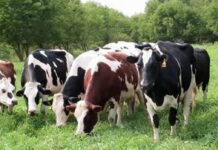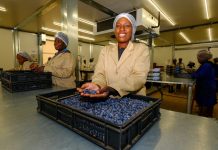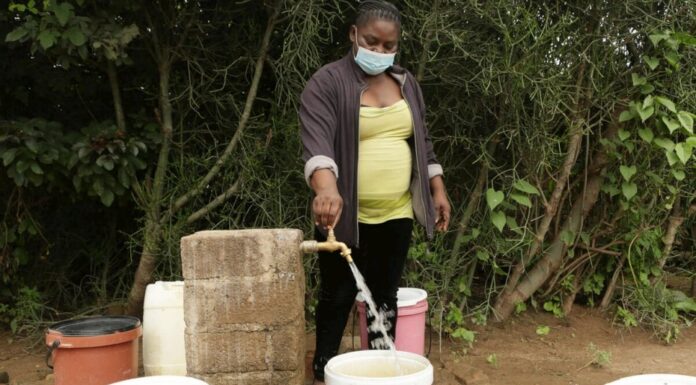Problem Masau
As the vehicle negotiates across the rugged terrains of Hurungwe District, scores of stumps and fallen trees could be seen in the once densely populated bushes, the situation threatening to worsen each farming season as tobacco farmers chop trees to cure their produce.
Most farmers in Hurungwe have since abandoned maize cropping citing low prices and viability challenges and have adopted tobacco farming which is fetching high prices on the market.
However, most of the small scale farmers cannot afford to buy coal to cure their tobacco and have since turned to indiscriminate cutting down of indigenous trees to process their tobacco.
With a total of more than 90 000 registered tobacco farmers up from 600 in 2000, Zimbabwe’s bushland is under siege.
“Firewood is the only available source of fuel we can secure to cure our tobacco, we know the government policy on indiscriminate cutting down of trees but we are left with no choice. The advantage of indigenous trees is that they are flammable and last long,” said one farmer Forward Chigara.
The effects of the deforestation are starting to be witnessed as soil erosion is starting to take its toll on what used to be densely populated bushes
Vian Bhachi said he had witnessed bushland being reduced to deserts.
“Our culture preserved bushland by labelling them sacred; no one ever dared to cut down trees but tobacco farmers in this area have wrecked havoc and if nothing is done to stop them, our trees will become extinct,” said Bhachi.
He added that herbalists in the area were now walking long distance in search of herbs.
“Indigenous trees are very helpful in many ways, parents are struggling to find certain trees for herbs when children experience stomach ache,” added Bhachi.
Caught flat footed by the farmers, the Forestry Commission is spearheading the crafting of a legal instrument that will force farmers to plant trees.
Forestry Commission General Manager, Darlington Duwa, said they were working on a legal instrument to prevent against deforestation.
“The instrument will force farmers to set aside land for the growing of trees to be used during tobacco curing and these will be fast growing trees,” said Duwa. “Our research division is working on fast growing tree varieties and the law we are talking about is almost 80% complete and should come into effect very soon.”
Zimbabwe’s forests are vanishing at an alarming level, but according to the regulatory body Environmental Management Agency, 2% of forests replanting exercise is credited to bee farming.
While the bushes are fast disappearing in the district, a bee farming pilot project at Chiropa Village under Chief Nematombo is proving to change lives in the area and in the process protecting the environment.
“A bee’s sting is sweet, it’s the poverty that stinks,” says 60-year-old Mavis Matayaunga, with a chuckle that exposes smoke-contaminated teeth as she points to this reporter a stone to sit on in a bush near her homestead in Chiropa village, about 300 kilometres north west of the capital Harare.
For the past three years, her flirtation with colonies of bees has injected cash into her coffers, in the process enabling her to send grandchildren to school and in the process protecting the forestry.
It is a luxury to send children to school in this impoverished village, where most people survive on less US$1 per day.
Matayaunga is walking previously uncharted territory for women in Zimbabwe, as beekeeping was largely seen as a preserve for men.
“Times have changed, we are doing it better than most men,” she says with conviction.
She is among the 200 members of Chiropa Beekeeping Association in Hurungwe District and part of more than 5 000 beekeepers countrywide, who are into full-time beekeeping.
Agriculture for Sustainable Development trained the community in beekeeping and forestry management in March 2012.
The NGO then gave the community 10 beehives, protective garments such as overalls, gloves, and gumboots, 1 000 bottles for packaging honey, sieves, brushes and wire used for suspending the beehives as a starter pack.
Out poverty – in good health
Hurungwe is one of the poorest districts in Zimbabwe, with 90% of the households surviving on less than US$1 per day.
According to the United Nation Children’s Fund, more than 65% of girls are married off at a tender age due to poverty.
However, the standard of life has improved in Chiropa village because of the beekeeping project.
Village headman Amos Chibaro says people in the area have no access to gainful employment in the area except agriculture, which makes it difficult for households to earn extra income.
“The money realised from the sale of the honey harvested from this project has improved livelihoods. Farmers can purchase fertiliser and boost their crop yields,” he says.
The Agricultural, Technical and Extension Services (Agritex) officer Media Mukarakatirwa says they were happy that farmers understand technology and the concept of integration in their enterprises.
“We are here to teach farmers to benefit from these lessons and projects,” she says, adding that farmers package their honey into 500g bottles which are sold for $3 each.
She says the farmers produce 30 bottles of unprocessed honey per day, and it costs less than $1,50 to produce a single bottle.
“We are now teaching the bee–keepers to factor in the costs of production because this is now business,” she says.
A medical doctor at a local clinic Mlungisi Ndebele says the health of the villagers improved
“For one, honey has long been considered healthier than sugar as a sweetener, and also exhibits some medicinal qualities. For some time now, local honey has been rumoured to stave off allergies by acting similarly to a vaccine,” he says
“Bees collect pollen from common local allergens, which then show up in the honey they create in small amounts. Consuming this honey then boosts the body’s immune system, so that following exposure to these allergens prompts a much less severe reaction.”
Environmental conservancy
Severe climates, factory pollutions, and greedy tobacco processors are all blamed for the dramatic decline of bees species in Zimbabwe.
Arnold Guzha, who chairs the Mudzimu Bee Keeping Group, says the bee-keeping business is bringing double benefits to the community.
“As well as earning money from selling our honey, we have also started taking more care of our forests because this is where the bees live and build their natural hives.” he says.
“We have not used our forests wisely until now.
“Now, instead of cutting down trees, we are keeping them. If we had started our honey activities a few years ago, we would have known to make wiser use of this natural resource.”














